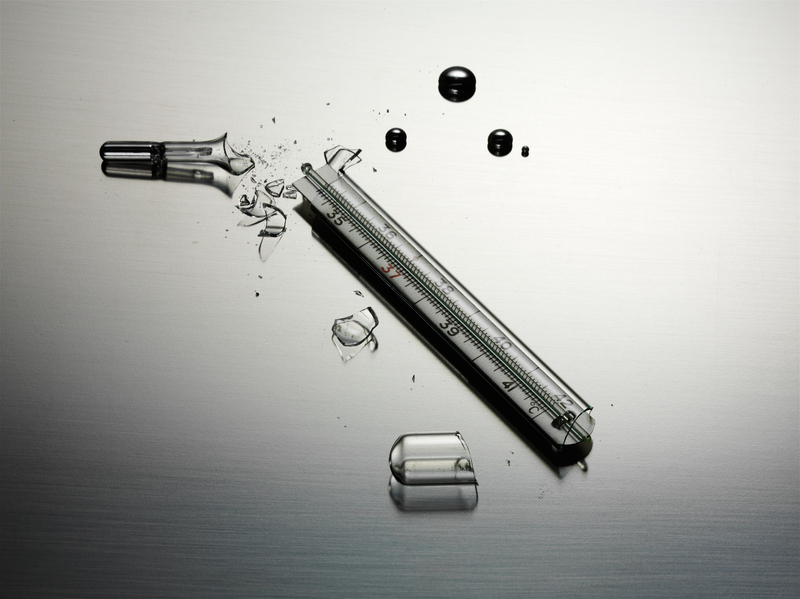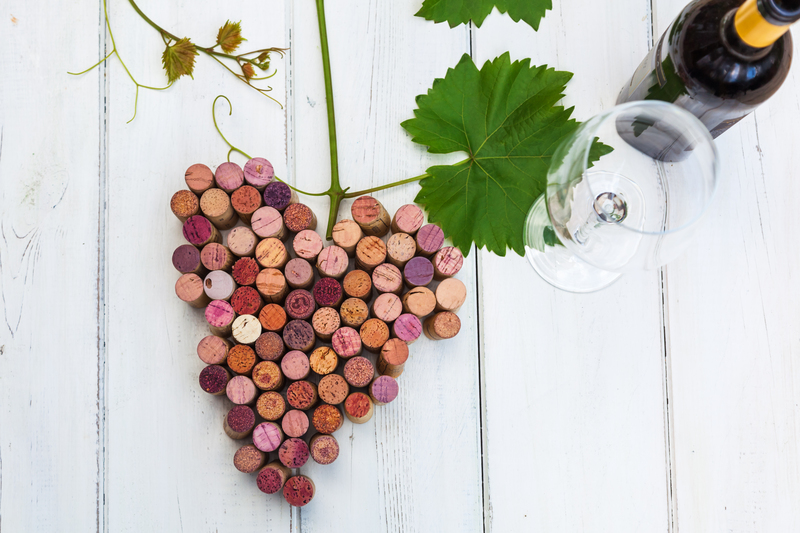Environmentally Safe Ways to Get Rid of Old Cookware
It's easy to accumulate pots, pans, and cooking utensils over the years, but what do you do when your trusty kitchenware reaches the end of its life? Most people toss old cookware into the bin, unknowingly contributing to landfill waste and environmental harm. Fortunately, there are many environmentally safe ways to get rid of old cookware that are responsible, planet-friendly, and sometimes even beneficial to your community or wallet. In this comprehensive guide, you'll discover smart and eco-conscious ideas for disposing of, recycling, or repurposing your aging pots and pans.
Why Proper Cookware Disposal is Important
Most old cookware contains metals, plastics, coatings like Teflon, and occasionally wooden or rubber handles. When these materials end up in landfills, they not only take centuries to break down, but can leach harmful substances into the soil and groundwater. Nonstick coatings, in particular, can release toxic chemicals into the environment.
Choosing an eco-friendly cookware disposal method helps minimize environmental impact, supports recycling initiatives, and even aids people in need. Here's how you can make a difference with your unwanted kitchenware.
Can You Recycle Old Pots and Pans?
One of the best environmentally safe ways to dispose of old cookware is by recycling. Most cookware is made from metals such as stainless steel, aluminum, cast iron, or copper, all of which are recyclable. However, recycling cookware isn't as straightforward as tossing your soda cans into a bin.
What Types of Cookware Are Recyclable?
- Stainless Steel: Among the easiest materials to recycle. Many recycling centers accept stainless steel pots and pans, provided any plastic or rubber handles are removed.
- Aluminum: Highly sought-after by metal recyclers. Remove non-metal parts before recycling.
- Cast Iron: Extremely durable and fully recyclable. Local scrap yards or recycling sites will often accept rusted or broken cast iron pans.
- Copper: Though less common in modern cookware, copper is valuable and recyclable.
Cookware Recycling Tips:
- Remove Non-Recyclables: Before recycling, take off any plastic, silicone, or wood handles. These should be disposed of separately or repurposed.
- Check With Your Local Program: Not all curbside programs accept cookware. Call ahead, or search your town's recycling website for information about scrap metal collection.
- Use Scrap Metal Yards: If your city doesn't recycle cookware, search for a nearby scrap metal recycler. Most will accept metal kitchenware, sometimes offering a small payment.
- Don't Recycle Nonstick with Coating: If your pan has a nonstick coating like Teflon, most centers require it be stripped before recycling. Otherwise, seek out specialty recycling programs (more on this below).
Specialty Recycling Programs for Cookware
Some brands and organizations offer dedicated recycling solutions for old cookware, especially for items that standard recyclers might not accept.
Mail-In Cookware Recycling Initiatives
- TerraCycle: This company offers Zero Waste Boxes for collecting non-recyclable items. While it's not free, it's one of the few ways to ensure nonstick cookware and mixed materials are recycled responsibly.
- Manufacturer Take-Back Programs: Brands like Calphalon and GreenPan have offered recycling take-back initiatives in the past. Check your cookware brand's website for up-to-date programs.
Big Box Store Recycling Events
- Bed Bath & Beyond, Macy's, and Target have occasionally hosted recycling events allowing shoppers to drop off old cookware in exchange for coupons or discounts. Keep an eye on their promotions, particularly around Earth Day.
Creative Ways to Repurpose and Reuse Old Cookware
Recycling isn't the only environmentally safe way to get rid of old pots and pans. Repurposing or upcycling is a sustainable approach that gives new life to tired cookware and adds charm to your home, garden, or community.
Fun Repurposing Ideas
- Garden Planters: Drill holes in the base for drainage and turn cast iron skillets, saucepans, and colanders into quirky plant containers.
- Bird Feeders: Hang an old pot from a tree and fill it with seeds for a rustic bird feeder.
- Art Projects: Use lids as wall decor, convert muffin tins into organizational trays, or decorate with paint for unique home pieces.
- Garage Storage: Use old pots to organize bolts, nails, or small tools in your workshop.
- Kids' Play Kitchen: Durable, cleaned cookware is safe for children's play kitchens and imaginative games.
*Upcycling* cookware is limited only by your creativity, all while keeping bulky items out of landfills.
Donate or Give Away Old Cookware
If your cookware is still usable but no longer fits your needs, donating it is an excellent, ethical way to pass it forward, helping others and the planet at the same time.
Where to Donate Usable Cookware
- Charity Thrift Stores: Organizations like Goodwill, Salvation Army, and local thrift shops accept clean, still-usable pots, pans, and utensils.
- Homeless and Domestic Violence Shelters: Shelters and transition homes often need basic kitchen gear for residents starting over.
- Food Banks or Soup Kitchens: Nonprofits that prepare meals for the community may appreciate donated cookware.
- Schools, Churches, or Community Centers: Contact local groups to see if they have need for donated kitchen items for their programs.
Online Platforms to GIVE Away Cookware
- Freecycle.org: This nonprofit helps connect people giving away and looking for secondhand goods in their local area.
- Facebook Marketplace, Craigslist: List usable kitchenware for free in "Free" sections online for locals to pick up.
- Buy Nothing Groups: Community-based groups where neighbors gift unwanted items with zero cost or expectation.
*Always wash and inspect cookware before donating. Avoid donating pieces that are heavily chipped, rusted, or have flaking nonstick coatings.*
How to Dispose of Nonstick and Teflon-Coated Cookware Safely
Nonstick cookware, especially those with worn or flaking coatings, present an eco-challenge due to their complex material. Most municipal recycling programs can't process Teflon or similar coatings.
Options for Environmentally Safe Nonstick Cookware Disposal:
- Mail-In Recycling: As mentioned, TerraCycle and similar companies offer solutions for responsibly recycling nonstick pans.
- Scrap Metal Facilities: Some local scrap yards will accept nonstick pans and process the coatings separately, but always call ahead to ask.
- Manufacturer Take-back: Inquire with the company, as some offer recycling services for nonstick lines.
- Repurpose: Consider using as planters or garden scoops if recycling isn't feasible.
*Never burn or incinerate Teflon cookware--this can release dangerous fumes into the air.*
Avoiding Landfill: How to Dispose of Glass, Ceramic, and Stoneware Cookware
Some bakeware and specialty cookware are made from glass (like Pyrex), ceramic, or stoneware. Unfortunately, most curbside recycling services do not accept these materials, as their melting point is much higher than container glass.
What to Do With Broken Glass or Ceramic Cookware:
- Repurpose for Art: Break up and use shards in mosaics, garden paths, or decorative projects (mind sharp edges!).
- Reuse: Use as plant pot drainage or for organizing drawers and cupboards.
- Special Waste Facilities: Some cities have facilities for recycling ceramics or heat-resistant glass. Research or call your local transfer station for advice.
- Disposal: As a last resort, wrap broken pieces securely in newspaper and place in the garbage (never loose, to protect sanitation workers).
Step-by-Step Checklist for Responsible Cookware Disposal
- Assess: Is the cookware still usable? If yes, donate or give it away.
- Research: Can your local recycler accept the material? If so, remove all non-metal parts.
- Use a Specialty Program for nonstick, Teflon, or mixed-material pots.
- Repurpose creatively for your home or garden if conventional recycling isn't possible.
- As a last step, securely dispose of items that pose a safety hazard or cannot be processed by any of the above methods.
Eco-Friendly Choices When Buying New Cookware
Choosing high-quality, long-lasting, and recyclable cookware impacts future waste. Here are tips for a more sustainable kitchen:
- Choose Durable Materials: Stainless steel, cast iron, copper, and carbon steel are long-lasting and often recyclable.
- Avoid Cheap Nonstick: These tend to wear out quickly and are hard to recycle.
- Look for Take-Back Programs: Many eco-conscious brands offer lifetime guarantees or recycling services for their products.
- Buy Secondhand: Shopping at thrift stores not only saves money but reduces demand for new production.
Frequently Asked Questions (FAQ)
Can I put pots and pans in the curbside recycling bin?
In most cases, no. Standard home recycling bins do not accept large metal objects. Take them to a local recycling center or scrap yard.
What about pans with wooden or plastic handles?
Remove non-metal parts before recycling cookware. Handles can be tossed in the trash or creatively repurposed.
Is old nonstick cookware safe to use?
If the coating is scratched, flaking, or peeling, it's best to stop using the pan. Degraded nonstick surfaces can release toxins.
Are there any stores that take cookware for recycling?
Occasionally, big box stores host recycling events or offer take-back programs. Always inquire with customer service or check online.
Conclusion: Make the Green Choice for Your Old Cookware
The kitchen is the heart of every home, and by practicing responsible disposal, recycling, and repurposing of old cookware, you're taking positive steps for a cleaner planet. Whether donating, recycling, upcycling, or exploring specialty programs, small changes add up to a huge environmental impact.
Remember, the next time you upgrade your pots and pans, explore environmentally safe ways to get rid of old cookware. Your attention to the environment not only benefits future generations, but also inspires those around you to adopt sustainable habits.
- Check local recycling and donation programs before discarding kitchenware!
- Get creative--give pots and pans new life in the garden or garage.
- Support brands with take-back or eco-recycling programs when buying new cookware.
Together, we can build a more sustainable kitchen--and a cleaner world!


